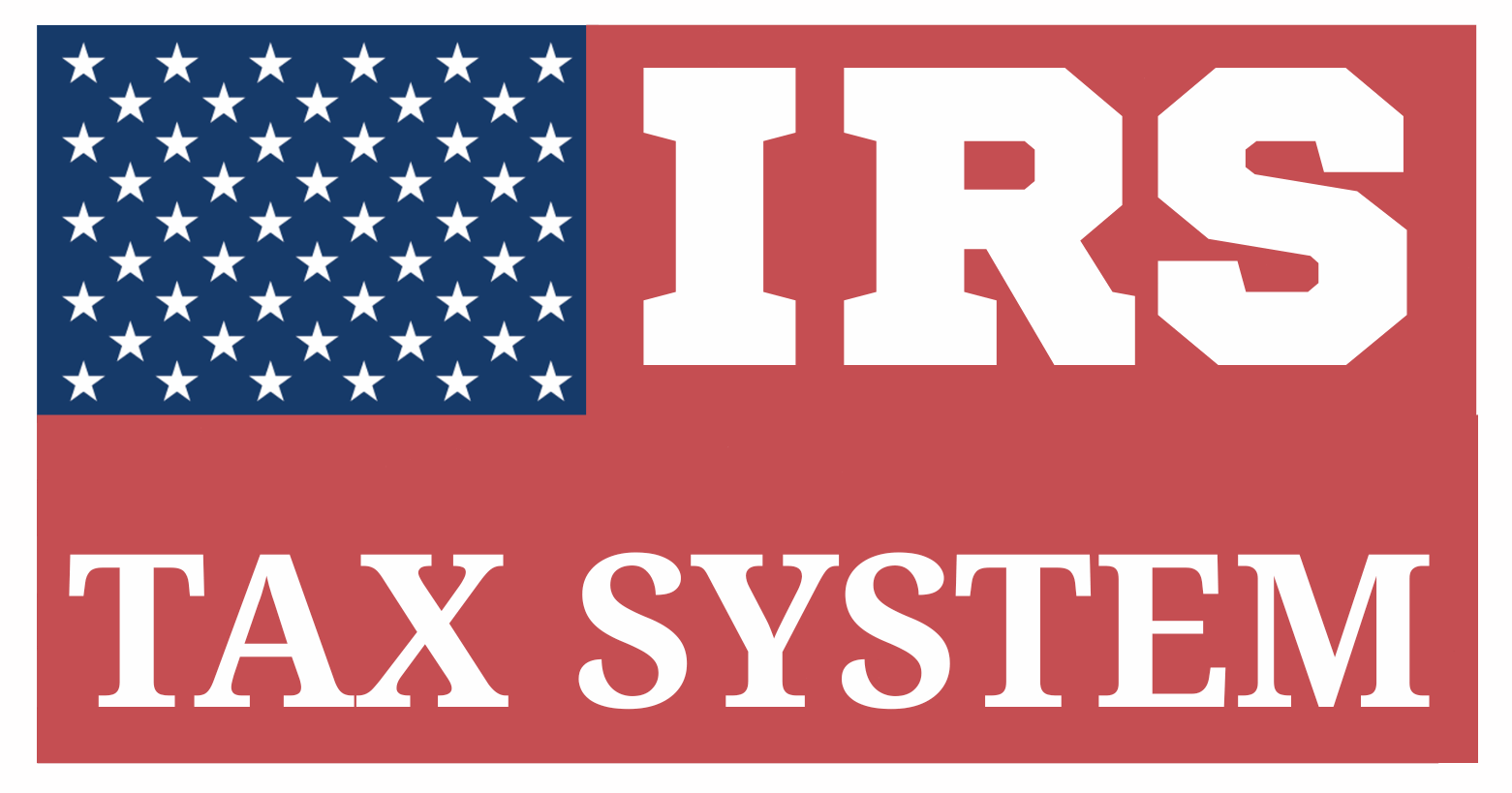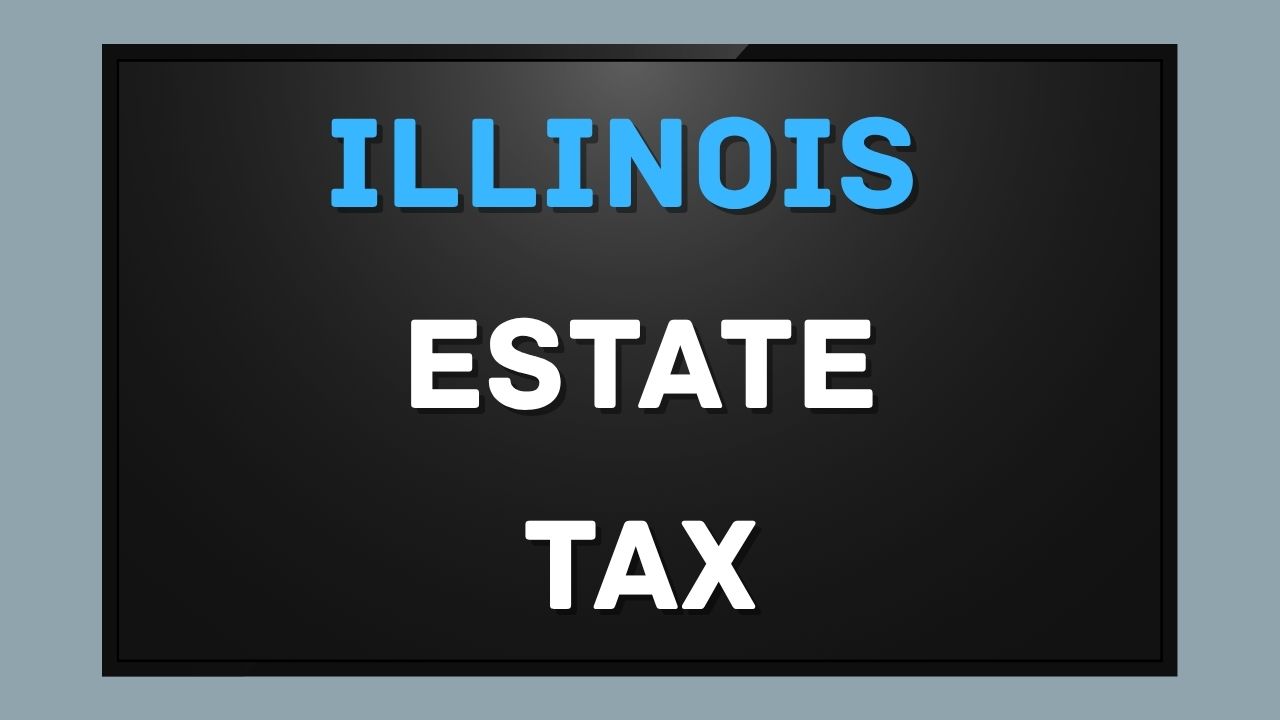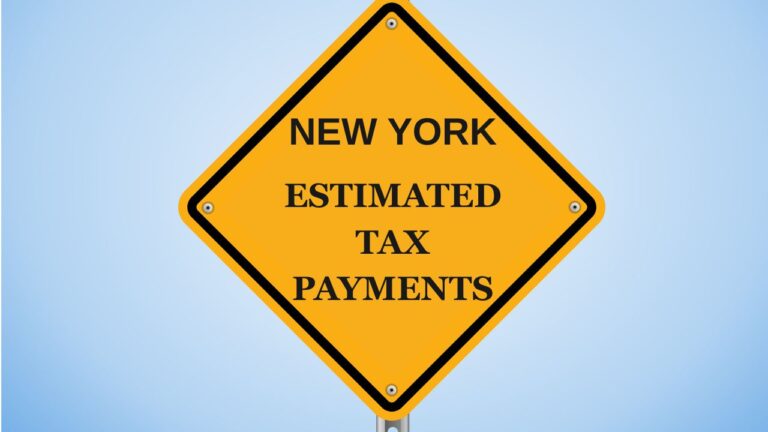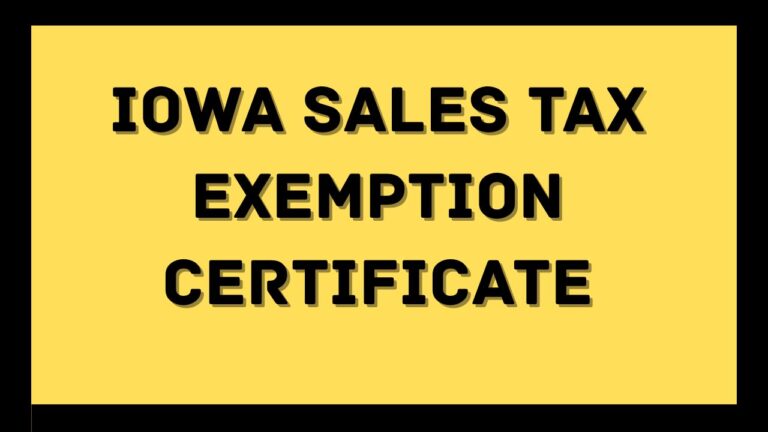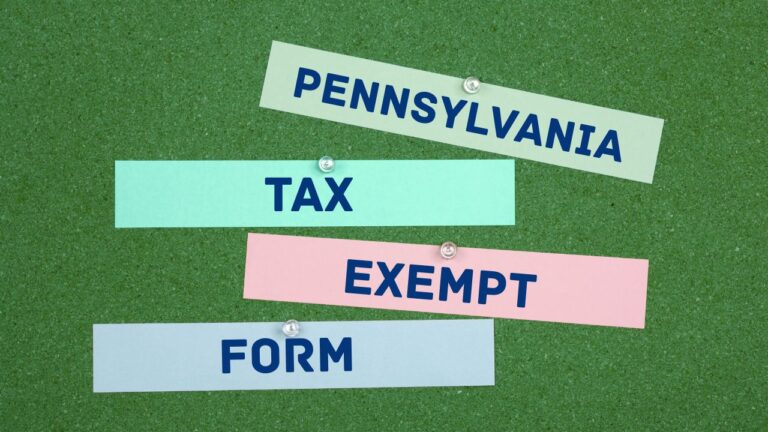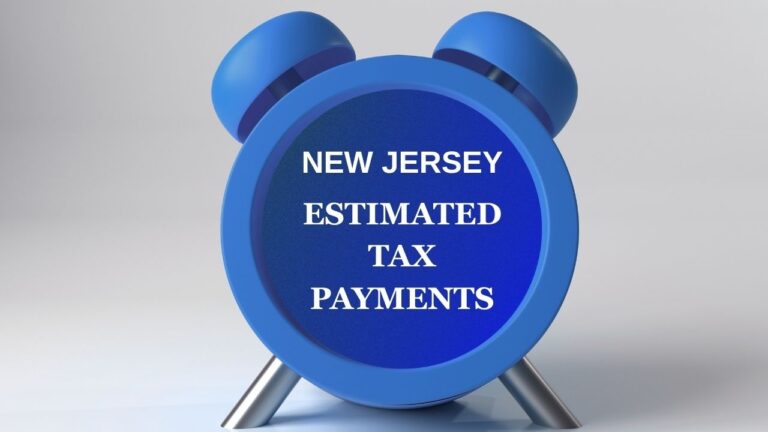Illinois Estate Tax: Excellent Guide For 2025
Table of Contents
Navigating Illinois Estate Tax in 2025: Empowering Your Legacy
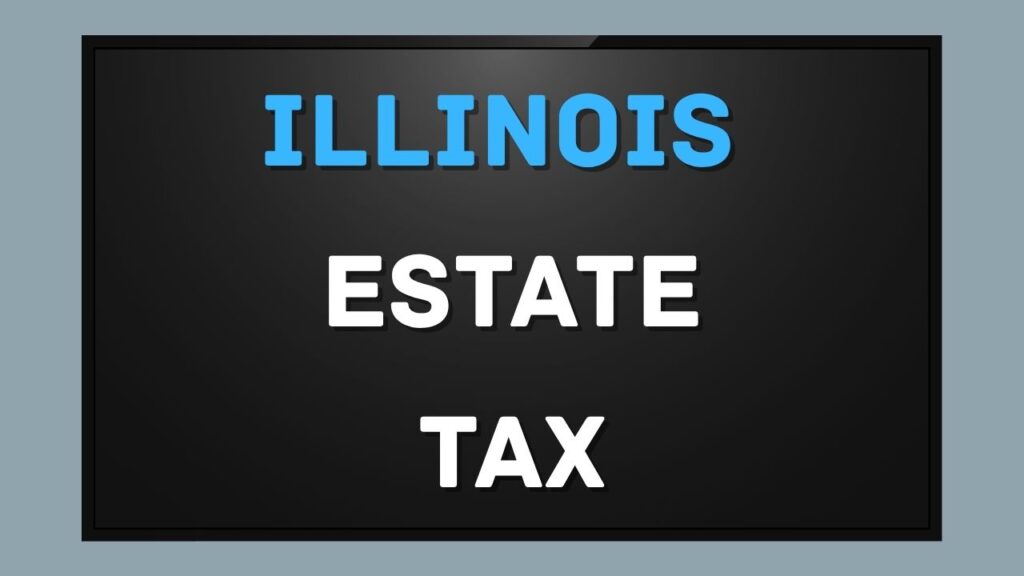
The Illinois estate tax is a state-imposed tax on the transfer of wealth at death, applicable to the gross estate of a deceased individual. It applies when the estate’s value exceeds the state exemption threshold of $4 million. The tax is assessed on the total value of all assets owned or controlled by the decedent at the time of death and is calculated independently of the federal estate tax.
This tax is levied even if no federal estate tax is due, creating a situation where mid-sized estates (e.g., between $4 million and the federal exemption limit, which is over $13 million for 2025) can still face a state estate tax liability in Illinois.
What Comprises the Illinois Gross Estate?
The Illinois gross estate encompasses the full value of all assets in which the decedent held ownership, control, or a financial interest as of their date of death. This is broadly interpreted and closely mirrors the federal definition under IRS rules, but with special attention from the Illinois Department of Revenue for state tax purposes.
Below is a breakdown of key asset categories:
1. Real Property
- Covers all types of real property such as primary residences, rental buildings, secondary homes, and raw land holdings.
- Both in-state and out-of-state properties are included in the gross estate calculation for residents.
- For nonresidents, only real property and tangible assets located within Illinois are counted toward the Illinois gross estate.
2. Bank and Investment Accounts
- Checking, savings, CDs, and money market accounts
- Brokerage accounts (stocks, mutual funds, ETFs, bonds)
- Includes both individually owned and jointly held accounts, depending on survivorship structure
- If the account is in the decedent’s name or if they had a beneficial interest, it is typically included
3. Retirement Accounts
- Traditional IRAs, Roth IRAs, 401(k)s, 403(b)s, and pensions
- Entire account value is includable in the estate, even if tax-deferred
- Beneficiary designations do not exclude these from estate inclusion
4. Business Interests
- Closely held corporations, partnerships, LLC memberships, or sole proprietorships
- Includes valuation of goodwill, intellectual property, or ownership percentages
- Discounted valuation may be possible using estate planning tools
5. Life Insurance Proceeds
- If the decedent owned the policy, or if the estate is the beneficiary, the death benefit is included in the gross estate
- Policies held in an Irrevocable Life Insurance Trust (ILIT) may be excluded, depending on timing and structure
6. Tangible Personal Property
- Includes jewelry, vehicles, boats, artwork, collectibles, antiques, furnishings, and equipment
- Appraisal values are often required for high-value items
7. Interests in Trusts
- Revocable living trusts (controlled by the decedent) are fully includable
- Irrevocable trusts may be partially includable depending on retained powers, income interests, or control
- Trust arrangements like GRATs and CRTs are taken into account when assessing the value of the Illinois estate.
8. Annuities and Income in Respect of a Decedent (IRD)
- Deferred annuities, structured settlements, and unpaid earnings (e.g., final paychecks, bonuses, dividends earned before death) are included
- Income in Respect of a Decedent (IRD) refers to earnings accrued before death but unpaid at that time, like lease income or royalty payments
9. Jointly Owned Property
- Full value included unless proven to be partially owned by others, particularly in non-spousal arrangements
- For spouses, typically only 50% is included (unless otherwise specified under tenancy rules)
10. Gifts Made Within 3 Years of Death (Clawback Rule)
- Certain gifts made within three years of death (especially of life insurance or retained interests) may be pulled back into the gross estate
- This rule is designed to prevent last-minute gifting solely to avoid estate taxation
Who Must File an Illinois Estate Tax Return?

An Illinois Estate Tax Return is required when the value of a deceased person’s estate exceeds the state exemption threshold of $4 million. Unlike the federal estate tax return—which applies only to large estates—the Illinois return may be necessary for mid-sized estates due to the state’s lower exemption and lack of portability.
Here’s a comprehensive breakdown:
1. Illinois Residents
The estate of a decedent who was a legal resident of Illinois at the time of death must file an Illinois estate tax return if:
- The total gross estate value (including real estate, personal property, investments, life insurance, etc.) exceeds $4 million, and
- The estate is required to pay estate tax under Illinois law.
Important: The gross estate includes both in-state and out-of-state property for Illinois residents.
2. Nonresidents Owning Illinois Property
A nonresident decedent is also subject to the Illinois estate tax if:
- They owned real property or tangible personal property physically located in Illinois, and
- The value of their Illinois-sourced estate exceeds $4 million, in proportion to their total gross estate.
In such cases, only the Illinois portion of the estate is taxed, using an apportionment formula.
3. Who Is Responsible for Filing?
The executor, personal representative, trustee, or administrator of the estate is legally responsible for:
- Completing and submitting Illinois Estate Tax Form 700 to report estate assets and determine tax liability
- Ensuring that all supporting documents (e.g., federal Form 706) are attached
- Calculating the tax due and submitting payment within the required timeframe
- Requesting an extension, if needed, for filing (not payment)
If there is no court-appointed executor, the person in actual or constructive possession of the estate (such as a surviving spouse or heir) may be held responsible for filing.
4. When Must the Return Be Filed?
- The Illinois estate tax return is due within 9 months after the decedent’s date of death.
- Any tax owed must also be paid in full by the 9-month deadline to avoid penalties and interest.
- If the federal Form 706 is required, it should be attached. If a federal Form 706 is not required, a pro forma version may need to be prepared and submitted for Illinois estate tax purposes.
5. What Happens if You Don’t File?
Failure to file a required return or pay the estate tax on time can result in:
- Interest on unpaid tax
- Penalties for late filing can reach up to 25% of the outstanding estate tax due
- Delays in estate settlement
- The state may place liens on Illinois property or other estate assets to secure unpaid estate taxes.
Illinois Estate Tax Exemption 2025
In 2025, the Illinois estate tax exemption remains fixed at $4 million, unchanged since it was last updated in 2013. This exemption amount is significantly lower than the federal estate tax exemption, which is scheduled to decrease from approximately $13.61 million in 2024 to about $6.8 million in 2026 (due to the sunset of the Tax Cuts and Jobs Act provisions).
What Is the Estate Tax Exemption?
An estate tax exemption is the dollar amount up to which an estate is not subject to estate taxes. Any portion of the estate that exceeds this exemption is subject to Illinois estate tax, with rates ranging approximately from 0.8% to 16% depending on the size of the estate.
Illinois Exemption Rules in 2025
- The $4 million exemption applies to all estates of individuals who were residents of Illinois at the time of death.
- Non-resident individuals with real or tangible property located in Illinois may owe estate tax on the portion of their estate connected to Illinois assets.
- The exemption is not portable between spouses. Unlike federal rules, Illinois does not allow a surviving spouse to use any unused exemption from the deceased spouse’s estate.
Comparison with Federal Law (2025)
| Feature | Illinois | Federal (2025) |
| Exemption Amount | $4 million | ~$13.61 million |
| Portability Between Spouses | No | Yes |
| Applies to Real Property in IL | Yes | Yes |
| Applies to Tangible Personal Property | Yes | Yes |
| Tax Rates | 0.8% to 16% | 18% to 40% |
Why the $4 Million Threshold Is Crucial
Due to the relatively low exemption threshold, many estates that are not federally taxable may still owe a significant Illinois estate tax. For example:
- An estate valued at $6 million would not owe federal tax in 2025, but would owe Illinois estate tax on $2 million.
- Proper planning is essential to reduce exposure to tax through trusts, charitable giving, or lifetime transfers.
Is the Exemption Scheduled to Change?
As of now, there is no scheduled change to Illinois’s exemption amount for 2025. However, estate planners and families should monitor state legislation, as tax policy proposals sometimes include updates to thresholds or rate brackets.
Illinois Estate Tax Rate – Full Breakdown (2025)
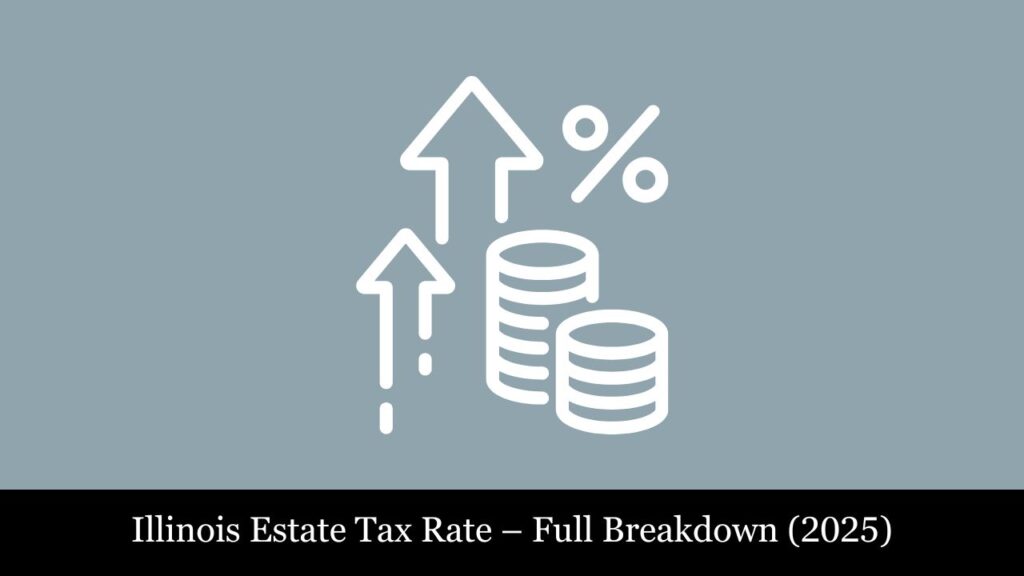
Illinois applies a graduated estate tax, where higher estate values are taxed at progressively increasing rates. While the taxable threshold starts above $4 million, the tax applies only to the portion of the estate that exceeds this exemption. The tax rates range from approximately 0.8% to 16%, depending on the net taxable estate.
How the Illinois Estate Tax Is Calculated
Illinois estate tax does not apply to the first $4 million of the gross estate. Once the estate exceeds the $4 million threshold, Illinois taxes the full estate value—not just the excess—because the exemption does not phase in gradually, a structure often called a “cliff” exemption.
Example:
If an estate is valued at $4,100,000:
- The estate is over the exemption by $100,000
- The full $4.1 million becomes subject to tax, not just the $100,000 overage
This can create a disproportionately high tax liability on modestly larger estates.
Estate Tax Rate Table (Approximate Brackets)
| Taxable Estate Value | Effective Tax Rate |
| $4.1 million – $5 million | ~0.8% – 5% |
| $5 million – $6 million | ~5% – 8% |
| $6 million – $7 million | ~8% – 10% |
| $7 million – $8 million | ~10% – 13% |
| $8 million – $10 million | ~13% – 15% |
| Over $10 million | Up to 16% (max rate) |
Note: These rates are approximate and calculated using Illinois’ estate tax tables. Exact liability must be computed using Illinois’ prescribed formulas and tax worksheets.
When are real estate taxes due in Illinois
In Illinois, real estate (property) taxes are paid annually in two installments, but the exact due dates vary by county. However, most counties — including the largest one, Cook County (Chicago) — follow a general timeline that can help guide property owners across the state.
General Real Estate Tax Due Dates in Illinois:
First Installment:
- Due Date: March 1 of the year after the tax year.
- Payment Amount: Generally set at 55% of the estate’s total tax liability from the prior year.
- Applies To: Most counties, including Cook County.
Second Installment:
- Due Date: Varies, but often sometime between June and September.
- Amount: Based on the current year’s assessed taxes, minus the first installment already paid.
- The exact amount depends on the final assessment and tax rate calculations by the county treasurer’s office.
Examples by County:
Cook County (Chicago):
- 1st Installment: Due March 1
- 2nd Installment: Usually due in August (may be delayed — e.g., in 2023, it was delayed to December)
DuPage, Lake, Will, Kane Counties:
- Typically send bills in April or May
- 1st installment: Due June 1
- 2nd installment: Due September 1
Always check with your local County Treasurer’s Office or website for exact dates, as some counties may shift deadlines due to reassessments, legislative delays, or technical issues.
Penalties for Late Payment:
- Interest Charge: Assessed at 1.5% per month, or part of a month, on any unpaid estate tax balance.
- After a certain period, unpaid taxes may result in a tax sale or lien against the property.
Illinois Real Estate Tax Credit – Full Overview

The Illinois Real Estate Tax Credit allows eligible taxpayers to claim a state income tax credit for property taxes paid on their primary residence in Illinois. This credit is designed to partially offset the burden of real estate taxes on homeowners by reducing their Illinois income tax liability.
Who Is Eligible?
To qualify for the Illinois Real Estate Tax Credit, all of the following conditions must be met:
- Primary Residence Requirement:
- You must have lived in and held ownership of your primary home in Illinois at some point during the tax year.
- Taxpayer Liability:
- You must have paid property taxes in 2024 (or relevant tax year) on your primary residence on or before the due date of the return (usually April 15 of the following year).
- Ownership:
- You must have been listed as the property owner on the real estate tax bill and must not have been reimbursed by someone else for the tax payment.
- Income Threshold:
- The credit is gradually reduced for individuals with a federal AGI above $250,000 (single filers) or $500,000 (married filing jointly).
How Much Is the Credit?
- The Illinois Real Estate Tax Credit is equal to 5% of the Illinois property tax paid on your principal residence.
- The credit is nonrefundable, which means it can reduce your Illinois income tax to zero, but won’t result in a refund beyond your tax liability.
Example:
If you paid $6,000 in property taxes, you may be eligible for a $300 tax credit (5% of $6,000).
Where to Claim It?
You claim the Illinois Real Estate Tax Credit on your Illinois Individual Income Tax Return (Form IL-1040).
- Use Schedule ICR (Illinois Credits) to calculate and report the credit.
- Report the real estate taxes paid on the appropriate line and include supporting documents if necessary.
How to Calculate Illinois Estate Tax (2025)? – Step-by-Step Guide
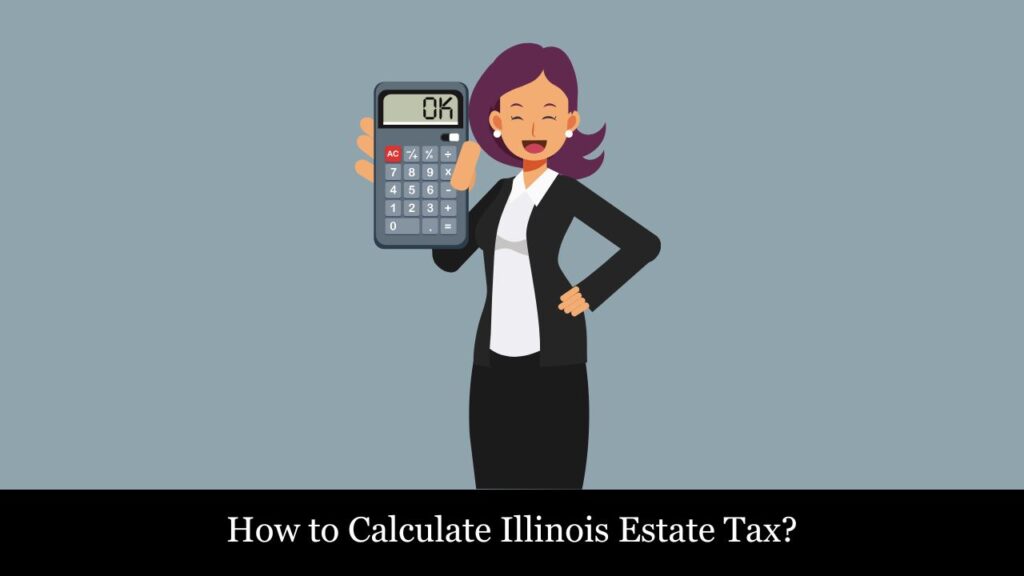
Illinois imposes estate tax on estates worth more than $4 million. The tax is graduated, and the rate increases with the estate’s value — up to a maximum of 16%. Importantly, Illinois uses a cliff-style exemption: once the estate exceeds $4 million, the entire estate becomes taxable, not just the excess.
Step-by-Step Breakdown
Step 1: Determine the Gross Estate Value
Calculate the total fair market value of all assets owned at the time of death. This includes:
- Real estate
- Bank accounts and cash
- Investment accounts (stocks, bonds, mutual funds)
- Retirement accounts (if applicable)
- Business interests
- Personal property (vehicles, jewelry, art)
- Life insurance payouts are included in the estate if the decedent held ownership of the policy
- Other assets like annuities or trusts (as required)
This total is called the gross estate value.
Step 2: Subtract Allowable Deductions to Get the Net Estate
Subtract allowable deductions from the gross estate, including expenses like:
- Funeral costs
- Administrative and legal fees
- Outstanding debts
- Charitable bequests
- Marital deductions (if passing to a surviving spouse)
- Mortgages or liens on property
The result is the net taxable estate.
Step 3: Check if the Estate Exceeds the $4 Million Exemption
- Estates valued at $4 million or less after deductions are not subject to Illinois estate tax.
- If the estate exceeds $4 million, the entire estate becomes taxable, not just the amount over the threshold.
This “cliff effect” makes estate planning essential, especially for estates valued slightly over $4M.
Step 4: Estimate Preliminary Estate Tax Using Illinois Rate Schedule
Illinois does not use a flat rate. Instead, it applies a graduated scale of tax rates (roughly 0.8% to 16%) using an estate tax table modeled after the pre-2001 federal system.
A simplified view:
| Taxable Estate | Approx. Effective Tax Rate |
| $4.1 million | ~0.8% |
| $5 million | ~5% |
| $6 million | ~8% |
| $7 million | ~11% |
| $8 million | ~13% |
| $9 million | ~15% |
| $10+ million | ~16% (top marginal rate) |
You must use Illinois Schedule E or Form 700 worksheet to calculate the exact tax. This is not a simple percentage; it’s based on a tiered cumulative bracket system.
Step 5: Subtract Credits (If Applicable)
You may be able to subtract any:
- State death tax credit (for estates with out-of-state property)
- Previously paid Illinois estate tax on jointly held or inherited property (in rare cases)
However, in most cases, there are no significant credits against Illinois estate tax unless apportionment is required.
Step 6: Determine the Final Tax Liability
The result after applying the tax table and subtracting allowable credits is the Illinois estate tax due.
Payment is due within 9 months of the date of death.
Example: Simplified Illinois Estate Tax Calculation
Let’s say John was an Illinois resident who passed away in 2025 with the following:
- Gross Estate: $5.5 million
- Deductions: $300,000 (debts, legal fees, etc.)
- Net Estate: $5.2 million
- Exemption: $4.0 million
- Taxable Estate: $5.2 million (entire amount taxable due to cliff rule)
Based on the Illinois estate tax schedule, an estate valued at $5.2 million could result in a tax liability ranging from approximately $280,000 to $300,000.
Note: This is an estimate. The final amount must be calculated using Illinois Form 700 worksheets.
Required Forms
- Form 700 – Illinois Estate Tax Return
- Federal Form 706 – Must be included, even if not filed federally (submit a pro forma version if not required federally)
- Schedule E – Illinois Tax Computation Worksheet
- Supporting documentation: Appraisals, deeds, account statements, etc.
How to Avoid Illinois Estate Tax?
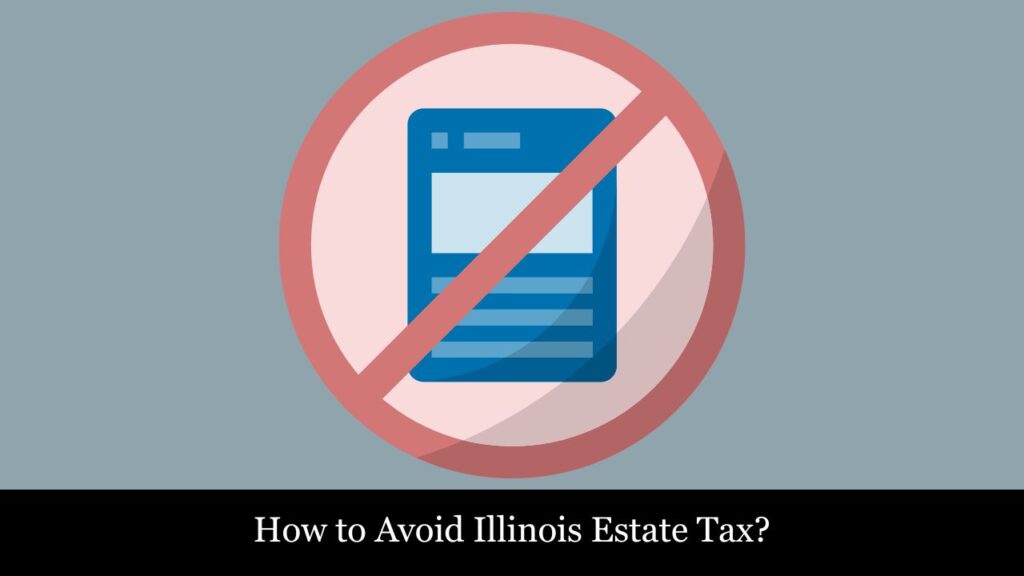
Illinois taxes estates valued over $4 million and does not allow the unused exemption of a deceased spouse to transfer to the surviving spouse. However, careful planning can reduce or even eliminate your estate’s tax liability.
Here are the most effective, legal strategies to consider:
1. Use a Credit Shelter Trust (Bypass Trust)
Because Illinois doesn’t allow portability of the $4M exemption between spouses, any unused exemption is lost if no planning is done.
Solution: Set up a credit shelter trust in your estate plan. This allows each spouse to preserve their own $4M exemption, effectively sheltering up to $8 million from Illinois estate tax.
Example: On the first spouse’s death, $4M goes into a trust. The surviving spouse benefits from the trust, but it’s not included in their taxable estate.
2. Gifting During Lifetime (Annual and Lifetime Exclusions)
Lower your estate’s taxable value by making lifetime gifts of assets:
- Annual gift tax exclusion (2025): You can gift up to $18,000 per person per year tax-free.
- Lifetime gifting: Give away assets gradually over time. Illinois does not have a gift tax, though gifts within 3 years of death may be “clawed back” into the estate for tax purposes.
Tip: Consider transferring assets likely to increase in value early to exclude their future appreciation from your taxable estate.
3. Establish an ILIT to Shield Life Insurance from Estate Taxes
When you hold ownership of a life insurance policy, its death benefit becomes part of your taxable estate. Placing it in an Irrevocable Life Insurance Trust excludes the proceeds from the taxable estate (if structured correctly and transferred at least 3 years before death).
4. Charitable Giving Strategies
You can reduce your taxable estate by making charitable donations, either during life or at death.
Options include:
- Charitable Remainder Trusts (CRTs): Provide income to beneficiaries first, with the remainder going to charity.
- Direct bequests in your will or trust.
Charitable gifts are 100% deductible from the taxable estate.
5. Establish a Family Limited Partnership (FLP) or LLC
These tools allow you to transfer assets to heirs while maintaining control.
They can also discount the valuation of business interests or real estate due to lack of marketability or control, reducing the estate’s reported value.
6. Fund 529 College Savings Plans
Contributions to 529 plans for children or grandchildren are removable from your estate and qualify for the annual gift exclusion.
You can front-load 5 years’ worth of gifts — up to $90,000 per beneficiary (as of 2025, for individual donors).
7. Move to a State Without Estate Tax
While more drastic, some choose to change residency to a state with no estate or inheritance tax (e.g., Florida, Texas, Nevada).
This requires careful documentation — such as new voter registration, driver’s license, and primary residence ownership.
Key Takeaways
| Strategy | Estate Tax Benefit |
| Credit Shelter Trust | Protects up to $8M for married couples |
| Lifetime Gifting | Reduces estate size pre-death |
| ILIT | Excludes life insurance from estate |
| Charitable Trusts & Bequests | 100% deductible from taxable estate |
| FLP/LLC Structures | Valuation discounts on large assets |
| Moving Out of Illinois | Avoids Illinois tax (if residency changes) |
Conclusion
The Illinois estate tax remains a key concern for individuals and families with estates exceeding $4 million. It is essential to plan early and consult with experienced professionals to minimize exposure, especially given the lack of portability and low exemption threshold compared to the federal level.
Whether you are administering an estate or preparing your legacy, understanding Illinois’ estate tax laws is critical for maximizing inheritance and ensuring legal compliance.
Frequently Asked Questions (FAQs)
Does Illinois have an inheritance tax?
No. Illinois does not impose an inheritance tax. Estate taxes are assessed prior to distributing assets to beneficiaries.
Do life insurance proceeds count toward the estate value?
Yes, if the decedent held ownership of the policy or designated the estate as the beneficiary, the proceeds are included in the estate.
Is the $4 million exemption per person?
Yes, but it is not transferable between spouses.
Can I avoid Illinois estate tax?
You cannot avoid it entirely, but you can reduce exposure through:
-Strategic gifting
-Proper trust planning
-Charitable giving
-Use of valuation discounts and planning for business interests
